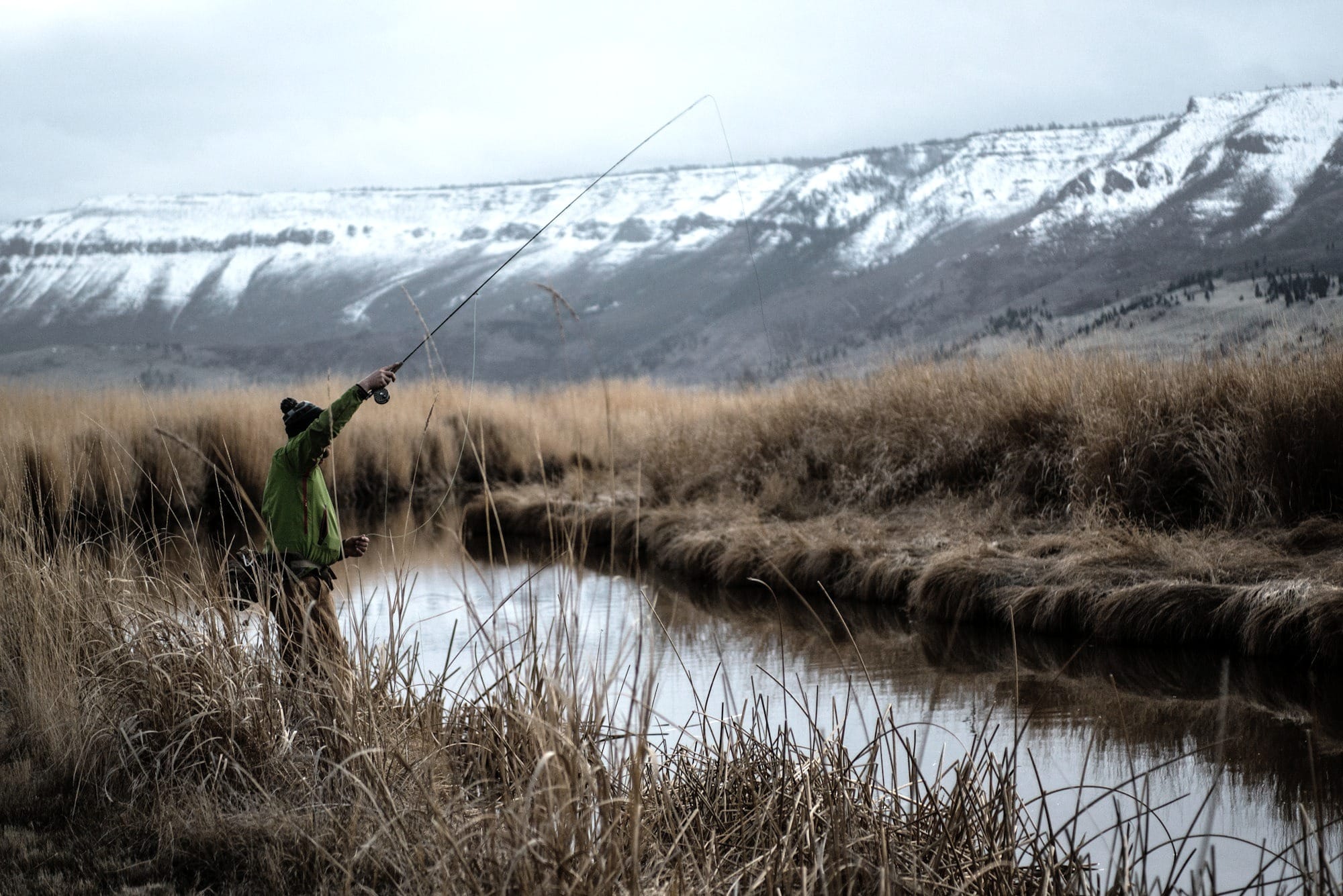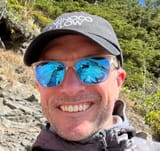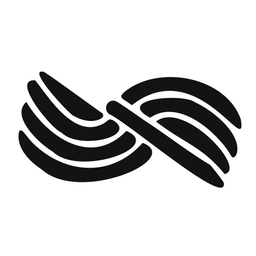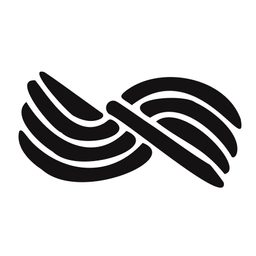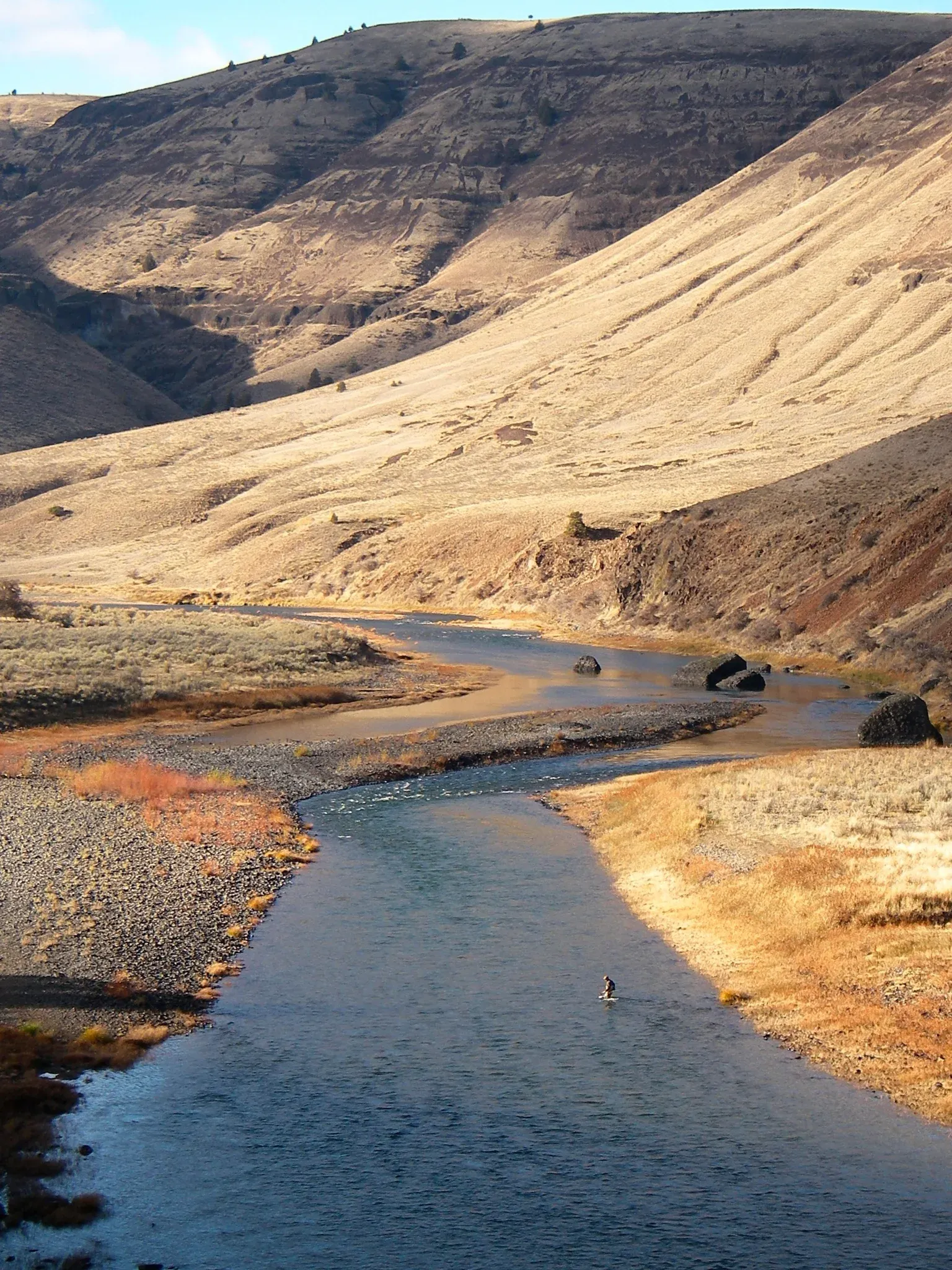My life story as told by water
Who I am, and how that's shaped my fishing life
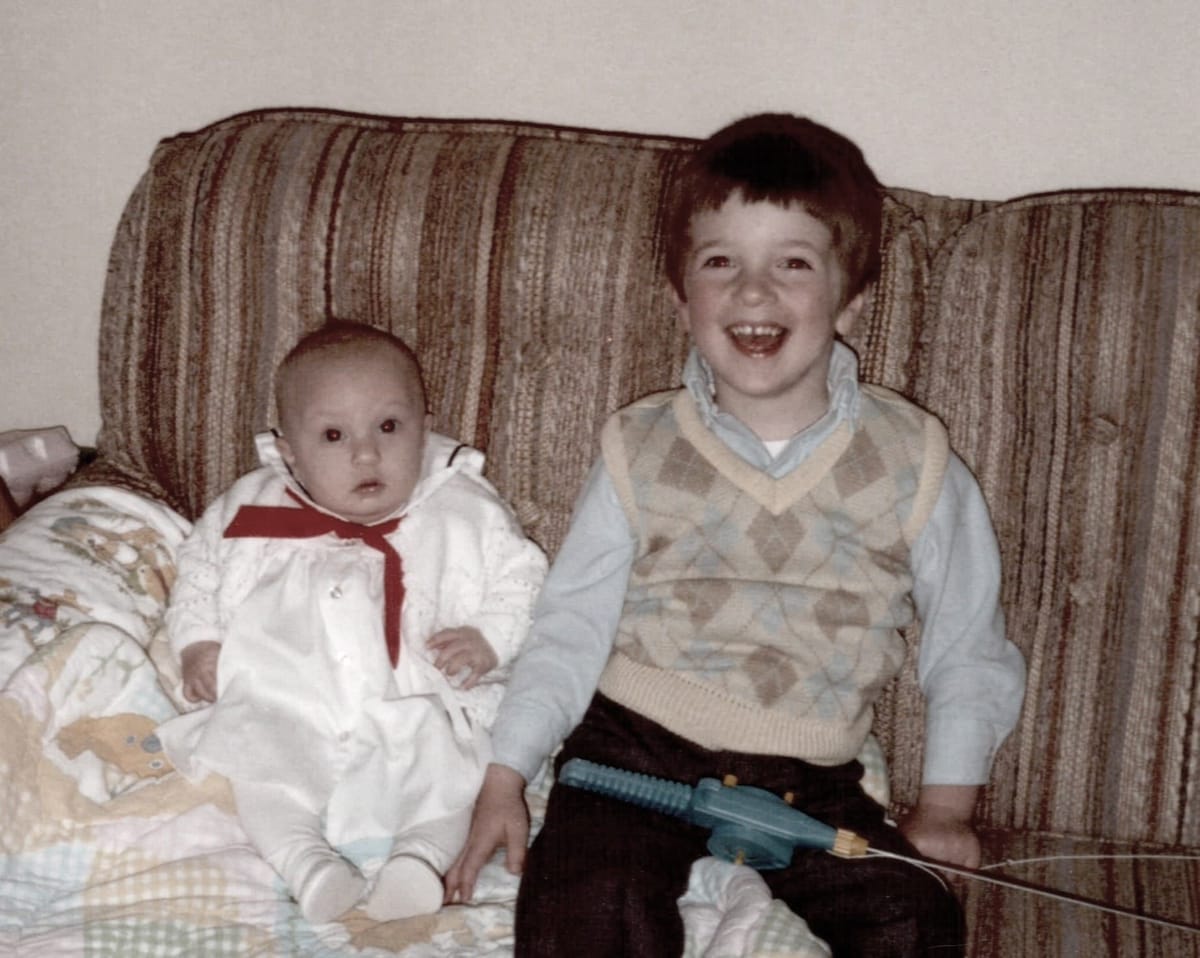
(n.b. Title brazenly stolen from the master, David James Duncan, who used it to head a must-read collection of his essays.)
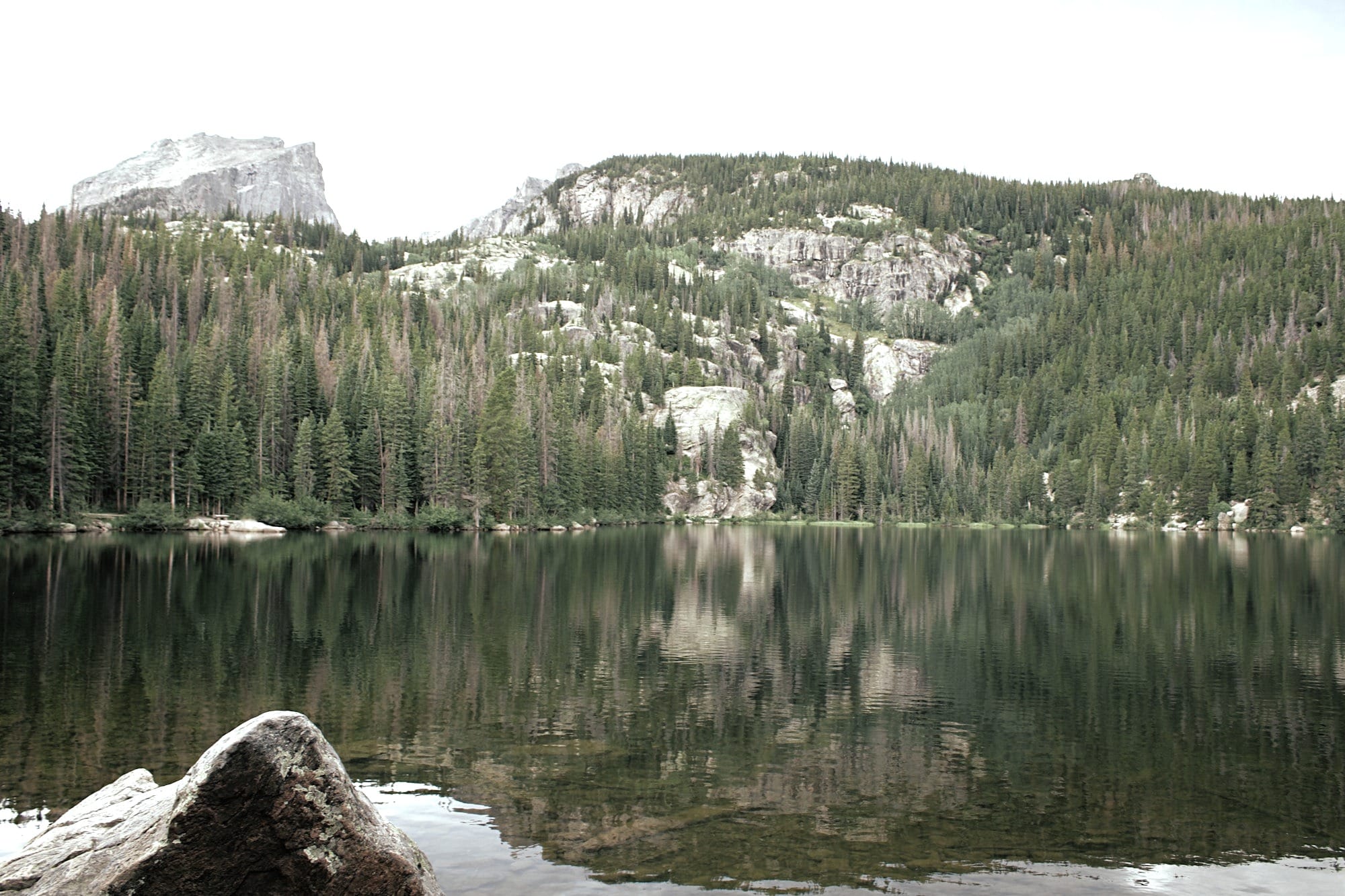
This article is part of the Mindset pillar of Current Flow State's
Learn to Fly Fish library. To support this work, and access exclusive perks, consider becoming a member.
Inside this entry
- Meet your instructor
- An alternate universe Up North
- Learning from local fly fishing clubs
- Giving back and going west
- Self assessment: what will your autobiography look like?
Meet your instructor
I grew up in a place with a lotta water. Michigan, the Great Lakes State. My parents had a place in one of the newly-created suburbs of Detroit, A sort of edge zone, or borderland, where we had a hundred acres of forest behind the house and a subdivision in front.
There was a decent-sized pond about ten minutes’ walk through the woods from the house, and a great little creek, Tarabusi Creek, a tributary to the then criminally polluted Rouge River. The Rouge was famous at the time for its industrial decrepitude, but has become a healthy fishery, thanks in part to advocates like the Friends of the Rouge River.
Our little corner of pre-suburban wilderness also had a fishing shop nearby—"Lakeside Fishing Shop 2"—on a street named after another river, Grand River. About that time I was old enough to ride bikes on my own, and have some pocket money. I invested in a rod and a little Plano tackle box with lead-head jig grub patterns that I would use to catch bluegill from the pond.
Fly anglers with thousands of dollars of tackle on their person don't like to hear this, but fishing with a nymph under an indicator isn't really much different than that. And that's not a bad way to start out, if you're an absolute beginner, to get the feel of things. That's how we start our first-ever Intro to Fly Fishing class trip. Things are a little more delicate, with smaller hooks and lighter line, and more than just bluegill in the mix, but in its essence it's not far removed.
Back home I devoured my dad’s fishing library, at least the stuff I could understand, the Time Life-type series on fish and angling. The fly fishing stuff was too advanced. But, I had my own personal copy of Pond Life and wore it out.
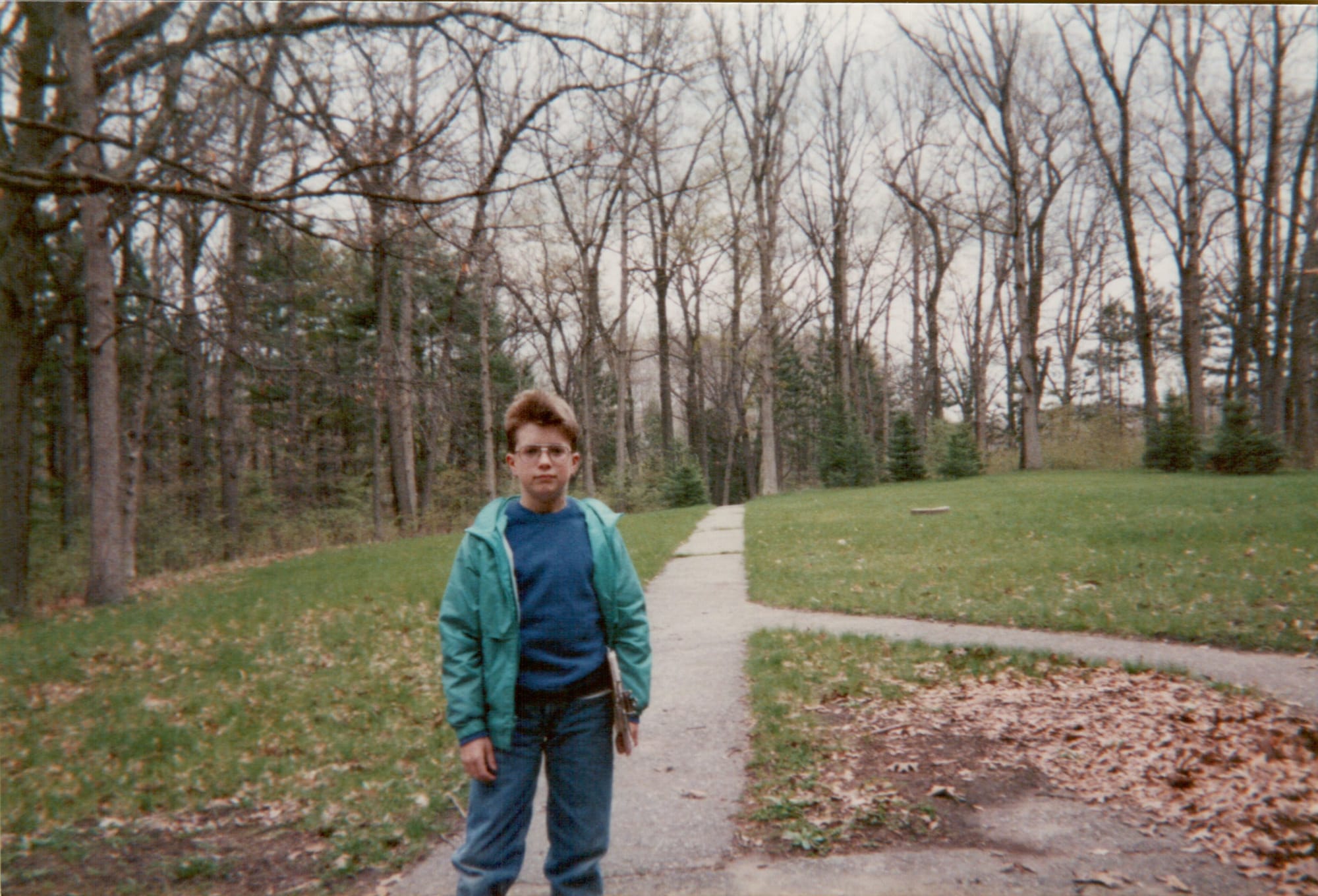
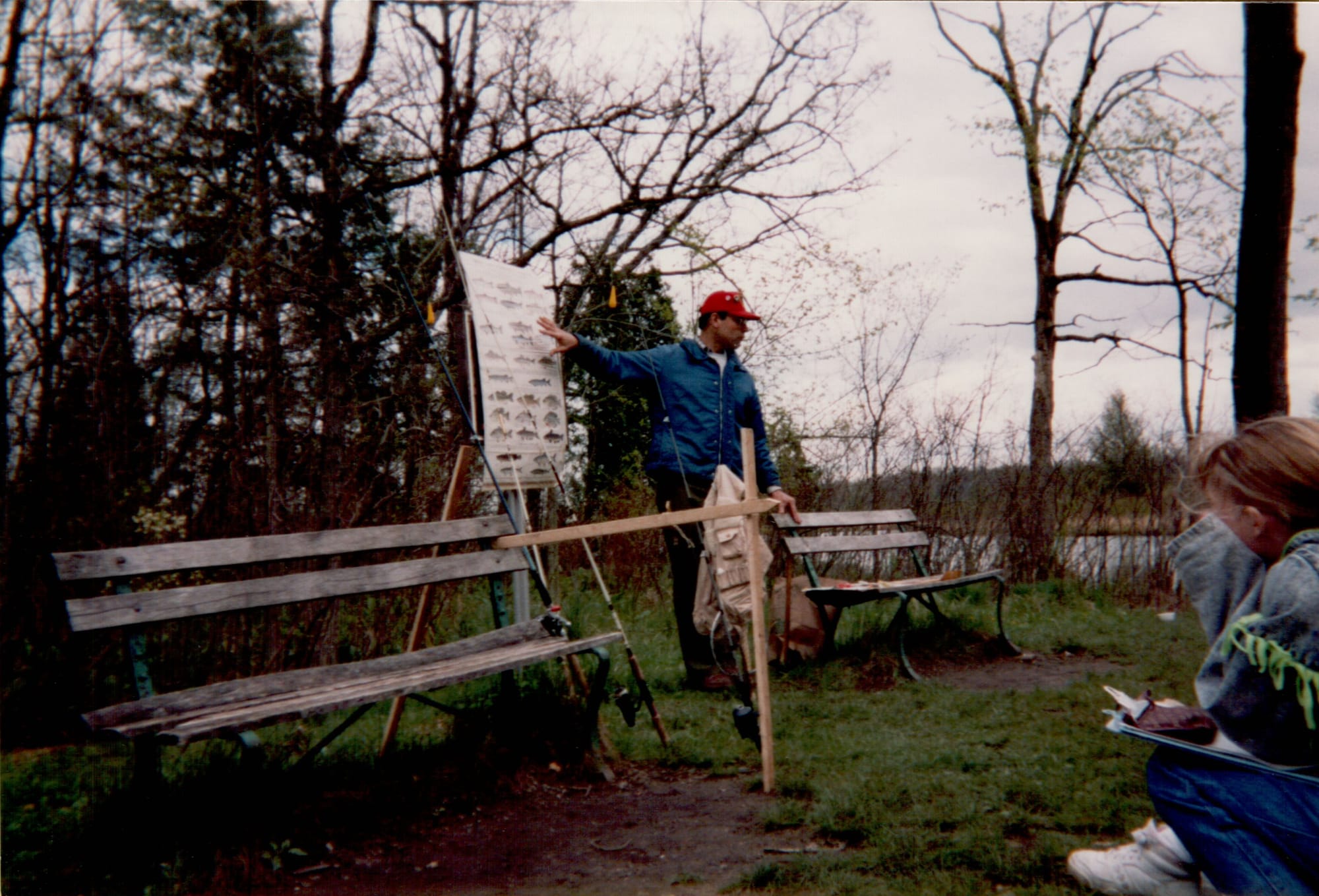
An alternate universe Up North
My grandfather was instrumental in nurturing the fishing bug. He and my grandma lived in a town called McKinley, “up North” in the tip of Michigan’s mitt.
Far, far away (3.5 hours in the car, but a lifetime in the mind) the smells and sounds were all different. We looked for rare Kirkland's Warblers, and drove grandpa's old Land Cruiser with the "awoooooga" horn up the sandy two-track to O'Brien Lake after dinner to look for deer and bears munching on wild blueberries.
I caught my first trout about that same time on the river that ran behind his house, the Au Sable. We were floating down the river in his aluminum rowboat, and I was dangling a snelled hook with a nightcrawler on it over the side. How many hundreds more fish have I caught in quite a similar manner, slowly gliding along the river.
The Au Sable is known for a lot of things. One of them being very large, hungry fish, another one of them being a very large, special kind of insect, very large mayfly called a Hexagenia limbata that only hatches at night and drives large trout crazy.
Suffice to say it's a pretty famous river system. I had no idea until later. It was just one of the places we fished. There’s a famous fly shop there, too, Gates’ Au Sable Lodge, and its current proprietor, Josh, has written several love letters to the river in the form of books called Rivers of Sand and Trout Water both of which I strongly recommend.
Learning from local fly fishing clubs
The Au Sable was where Trout Unlimited was born, when a group of concerned anglers joined together to help preserve the river’s health. Trout Unlimited advocates for cold water habitat and resource protection and protecting and promoting the nice places trout live.
I didn't know it at the time, but I was growing up getting exposed to this amazing and pristine river, stretches of which are's known as the Holy Water in fly fishing parlance. But I was a kid, and I didn't know better. I just liked to fish.
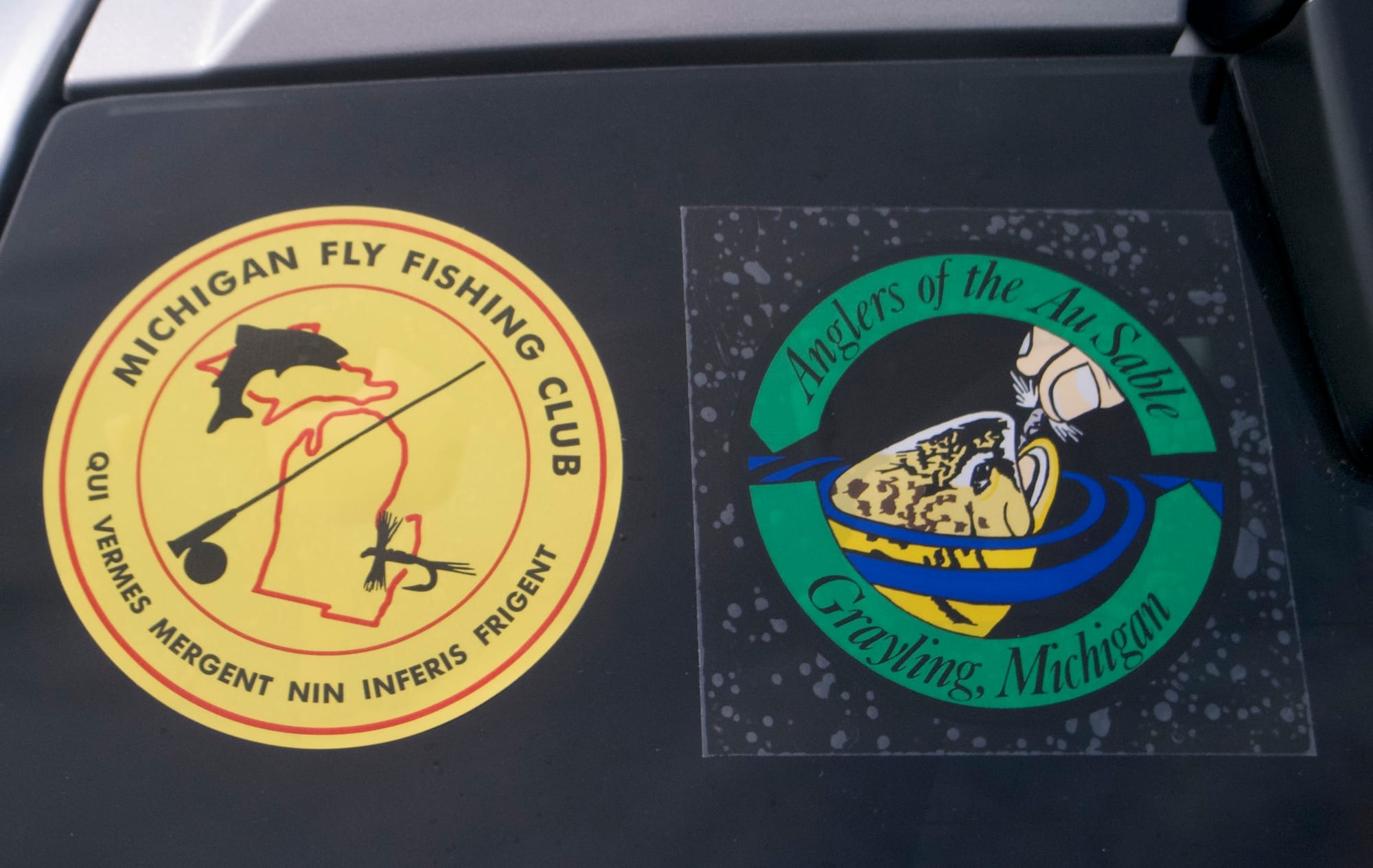
It wasn't until I was probably in my late teens that I had a mentor and a pal—my dad—who got me into fly fishing as well. And we were part of Michigan Fly Fishing Club together. Michigan Fly Fishing Club is, as you might imagine, like a pretty fun group.
Their motto is bastard Latin: "Qui vermes mergent nin inferis frigent" roughly translated as those who dunk worms should burn in hell. The club has lots of meetings with guest speakers, outings, and fish-alongs and things like that.
It’s pretty safe to say without the support of the club and its members I wouldn’t be the angler I am today.
And so we had a great community. I was one of the youngest members by 30 years, which to me was great, because there was a lot of experience to draw on. Every summer the club took a DIY trip to Montana. We always stayed at a place called the Slash E Ranch near Island Park, Idaho, just a few miles from West Yellowstone.
It’s pretty safe to say without the support of the club and its members I wouldn’t be the angler I am today. Old timers were around to have their brains picked and practice fishing stories on. So I had my formative fly fishing experiences not in Michigan, but rather in Montana.
Giving back and going west
Fast forward, I moved to New York and had a career in the media and publishing world. I fished there. I fished for striped bass in the surf off Rhode Island and Massachusetts and Montauk. We fished a lot in upstate New York, on the Delaware and Beaverkill and Callicoon Creek. These are very famous eastern rivers, where modern dry fly fishing was born, but they didn’t do it for me.
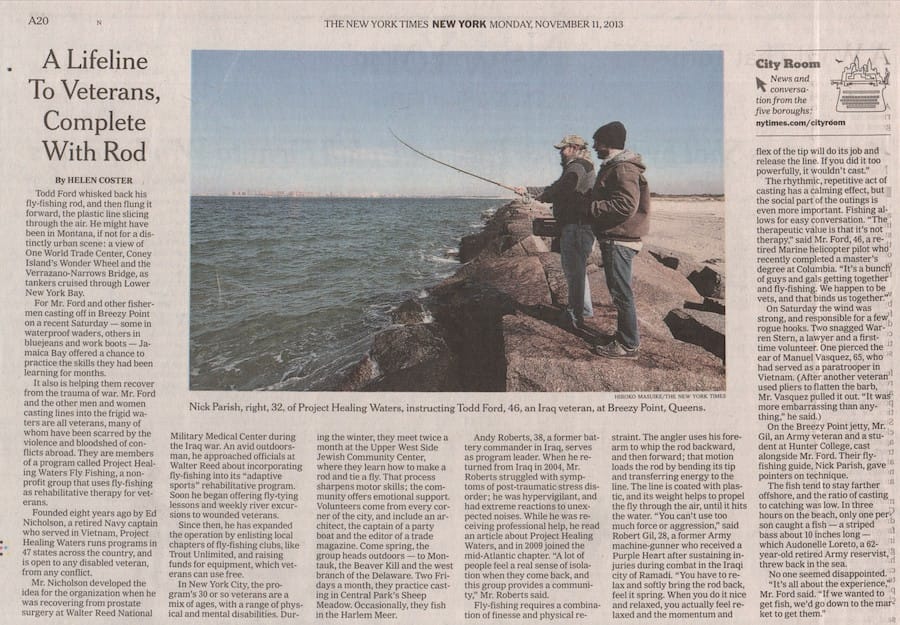
I did my fair share of connecting on the east coast, too. I took friends fishing upstate, and helped them catch their first trout. I volunteered with Project Healing Waters and the Veteran Anglers of New York and helped disabled vets experience the emotional benefits of fly fishing.
I began to realize that, for me, helping others connect with angling and finding their reasons to fall in love with the sport was just as exciting as catching fish. And so I leaned into that, and looked for more opportunities to take new anglers out, and help them find their first fish.
But I kept coming out west. Everything was bigger there: the water, the bugs, the fish. When my sister moved to Bend and then to Portland. I kept coming to visit. I had some key realizations: it usually only snows in the mountains. There are salmon and steelhead in addition to trout.
I began to realize that, for me, helping others connect with angling and finding their reasons to fall in love with the sport was just as exciting as catching fish.
All that added up to being able to fish a lot more than I can fish out east or that we can fish in Michigan. It's true. We're really lucky here in Oregon that we can fish 365 days a year. And if you're in the valley or if you're in parts of the coast or if you're in parts of eastern Oregon, you don't have to worry about the entire universe being frozen like we did in Michigan.
There are ample opportunities. And so when we made a decision to move out here, it was pretty clear I was going to be able to fish a lot more than usual.
And so I began to start to take notes, write it all down, and pitched the idea of an Intro to Fly Fishing class to Portland Community College, and that got us here, where we are today: classes, the Learn to Fly Fish Pillars, and this thing we're doing together.
Self assessment: what will your autobiography look like?
What might your autobiography with water look like?
Share in the comments!
𓆟 𓆝 𓆟
Next in this series:
